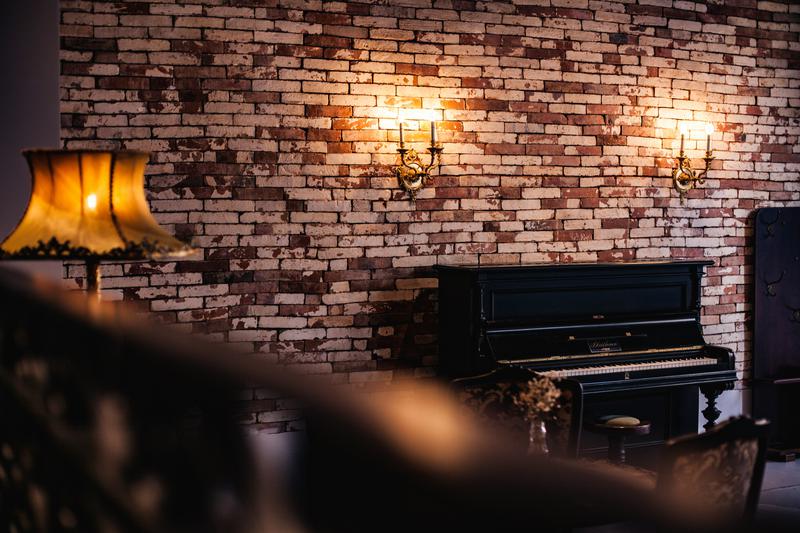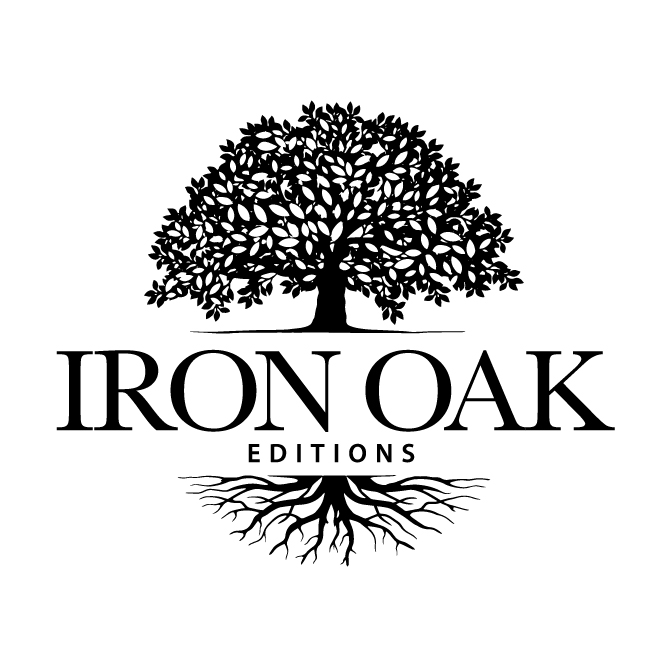by Max Parker
February 13, 2024
Max Parker is a queer writer from the Pacific Northwest currently living in Brooklyn. Max holds an MFA from Stony Brook University, and reads for Split Lip Magazine and West Trade Review. Max’s work appears in The Palisades Review, West Trade Review, The Brooklyn Rail, Mid Magazine, and The Southampton Review. Their poem “Secrets and Surprises” won the 2022 West Trade Review Prize for Poetry, selected by Kemi Alabi. Contact at www.maxparker.me.
Greasepaint by Hannah Levene; Nightboat Books; 172 pages; $16.95.
Set in the piano bars, union meetings, and delis of 1950s New York, Hannah Levene’s debut novel Greasepaint introduces readers to a show-stopping cast of butch dykes who reject the separation of reality from performative existence. While several characters regularly sing or play piano on stage, the performance of gender and politics carry just as much page space. Levene overlaps chatter with breakneck speed, setting characters to debate on the distance between the personal and the public, the masculine and the feminine, and whether or not they have anything “left to lose." Readers should expect a raucous time bound by no narrative rules, readying themselves for Levene’s dizzying wit and proclivity to let her characters break out into song in favor of direct sincerity.
The novel opens with a cast list, with characters divided by their prime loyalties: “The Anarchists,” “The All-Americans,” and “The BOP” (The Butch On Piano Player’s Union). Readers join the BOP by the jukebox in the midst of a union meeting, discussing the racial politics of Gershwin and readying their newsletter for print. The sentences are long and unwieldy, rushed with little room for breath: “all the piano players in town who wear their hair short and their shirts pressed and who ladies love it’s the BOP.” Though not outright stated, there is an implied ongoing performance throughout the book, calling attention to the moment between reality and mythologizing. A participatory, chorus-like audience responds to the bartender’s calls for social revolution and characters are announced when making their way to the union’s table. The narrative then quickly pivots to introduce Frankie Gold, anarchist, onstage singing “Anything you can wear, I can wear better” to another ecstatic, participatory audience while Sammy Silver, fellow anarchist, backs her up on keys. Reader’s focus is then shifted to the All-Americans gathered around the dinner table with steak and potatoes, introducing readers to Vic, who looks “like a motorbike,” and Laur, “the type of boy you bring home to your parents.”
Greasepaint is fast-changing in rhythm and scene, with little concern for orienting the reader. Levene’s unique narrative rhythm quite literally lives within the crowded public spaces it depicts—prose and dialogue are not broken by paragraphs, running-on as characters frequently talk on top of each other, changing subjects or breaking into song at the drop of a hat. The narrative almost exclusively takes place on Friday nights, daytime mentioned only in passing or summary, lending to a liquid sense of time throughout. Straightforward “story” is not Levene’s primary concern here. Rather, a refusal of rules—a perfect decision by the author considering the novel’s self-claimed anarchy and devotion to the socially ostracized 1950s butch.
Greasepaint follows our cast on their Friday night lives between piano bars, delis, and union meetings. While in the same physical spaces, pacing never feels stagnant. The novel’s surprising moments of warmth include: dynamite stuffed in slacks, a play written about losing one’s fingers, and passionate brawling. Levene treats time as a malleable object, and is consequently able to jump inside flashbacks and past conversations with singular tenderness. The effect is a leveling: moments in the past carry just as much urgency as those in the present. The most memorable persisting tension is in Frankie’s severed relationship with her father, a Jewish-anarchist poet who nurtured her anarchy and challenging spirit, but rejected her upon learning her sexuality. Throughout the novel, Frankie challenges his hypocrisy in cutting her off, while continuing to respect his teachings and yearn for his love.
The author’s most evocative craft moments come not from eschewing narrative norms but rather the quick, lucid punches of Levene’s characters defining their bodies and other’s. Often this is tied to their gender presentation—“I don’t want you to imagine my body under my suit,” Frankie thinks, “I want you to look at me and see just that my body is a suit, you understand?" —but not always. To be butch is to be hyper-aware of one’s own body, all the ways in which it does and does not fit into the expectations of both the masculine and the feminine (particularly by the 1950’s standards, in Greasepaint’s case). But it is also more euphoric than that. Butchness is also about transcending the body on some level, redefining as the individual sees fit for their own gender presentation and performance. Turning the relentless awareness of one’s own body into a tool rather than a hindrance.
In Greasepaint, this awareness permeates the way in which characters are described to the reader, concerned with the transformative over the literal. Vic is described as a motorbike, Frankie “beautiful like a bed that’s been slept in.” Frankie’s old lover Lily stands “like a sunset.” Throughout, the character’s clothes and hairstyles are described in great, exact detail, though any other physical appearances are rarely mentioned outside of metaphor. Levene is very adept at zeroing in on the essence of her characters rather than the literally physical, vividly characterizing while also distancing the characters from gender of any kind. It’s exciting to experience such a frank, queer gaze on the page—that which is interested in affirming the individual rather than defining it.
In regard to traditional plot, readers will not experience much variation beyond the novel’s conceit. “Another Friday night oh it’s getting to be repetitive,” Levene writes seventy pages from the end . She is right. Readers should not expect full access to the character’s lives in Greasepaint. This is not the novel’s concern. Readers need only know the cast in their true form: hair greased back, wearing a soft leather jacket or a lived-in suit, and among their chosen family. Levene omits the character’s moments of survival and assimilation, only inviting readers into the times where the characters are empowered, bolstered by their peers rather than othered. On the page, the straightforward way in which Levene’s characters communicate their positionality is intoxicating and memorable. “The people want roses just as much as they want bread,” Frankie tells Sid at the end of one Friday night, “they don’t want just to survive but to know beauty doing it…We’re fucking both Sidney, breadnroses all at once and nobody knows whattado with us." These are characters who know themselves, and want to share that ecstasy with others.
Greasepaint invites readers inside oral histories at the time of their fabrication, sparing no breath or wasted time. The novel’s high spirit and constant wandering eye make it the perfect novel to bring along for restless moments in the outside world—reading alone at a bar, the park, or on the bus. Levene’s honest, effortless precision on the line level is exhilarating, and collapses the space between reader and character. The novel is undefinable, inimitable, and sometimes a little maddening. But, then again, no one comes to an anarchist, butch piano bar novel looking for squeaky, clean fun. And that’s what makes this novel such an exciting read. Greasepaint’s delight is in indulging the magic of Friday night: when joy overflows to song, and the gossip is so smart it has to be recorded.
__________________________________________________________________________________________________________________________________________________________________________
__________________________________________________________________________________________________________________________________________________________________________
__________________________________________________________________________________________________________________________________________________________________________
__________________________________________________________________________________________________________________________________________________________________________
The Salvation of Leather and Piano Bars in Hannah Levene’s Greasepaint
FICTION REVIEW
Image by Giancarlo Duarte from Unsplash
__________________________________________________________________________________________________________________________________________________________________________
© 2024 Iron Oak Editions
Stay Connected to Our Literary Community. Subscribe to Our Newsletter





